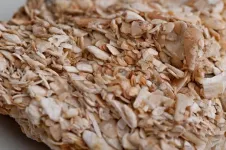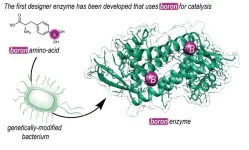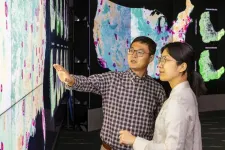(Press-News.org) Type 1 diabetes is an autoimmune disease that leads to disrupted glucose metabolism. It requires lifelong insulin therapy. The Global Platform for the Prevention of Autoimmune Diabetes (GPPAD) collaborates within a European network to develop new methods to prevent this condition which is, to date incurable. AVAnT1A is GPPAD's third intervention study. It will investigate whether vaccination against SARS-CoV-2 in the first year of life can protect children who have an increased genetic risk for type 1 diabetes from developing the condition. The study is supported by funding from The Leona M. and Harry B. Helmsley Charitable Trust.
In Germany, four out of 1000 children are diagnosed with type 1 diabetes, a metabolic disorder triggered by an autoimmune reaction. In individuals with type 1 diabetes, the immune system destroys the insulin-producing cells in the Langerhans islets of the pancreas. Affected individuals require lifelong insulin treatment as insulin plays a vital role in transporting sugar from the blood into the body's cells. Approximately 90 percent of affected children and adolescents have no close relatives with type 1 diabetes, often leading to a late and unexpected diagnosis. However, researchers can identify the underlying autoimmune process long before symptoms occur, based on islet autoantibodies in the blood.
Viral Infections are an Environmental Factor for Type 1 Diabetes
The exact causes of the underlying autoimmune reaction remain unclear. In large-scale, long-term studies, researchers at Helmholtz Munich have identified viral infections in early childhood as a crucial environmental factor for the development of type 1 diabetes. During the COVID-19 pandemic, GPPAD researchers made another important observation: after contracting a SARS-CoV-2 infection, children with an increased risk for type 1 diabetes were more likely to develop islet autoantibodies. “COVID-19 has increased the risk of the disease. We have seen that children who had COVID-19 before age 18 months were around five times more likely to develop the islet autoantibodies as those who were not infected,” reports Prof. Ezio Bonifacio, GPPAD researcher at the Center for Regenerative Therapies Dresden (CRTD) of TUD Dresden University of Technology. These autoantibodies are biomarkers indicating the beginning of the autoimmune process that leads to type 1 diabetes.
New Study Aims to Clarify Correlation
In a new study, GPPAD aims to further investigate this relationship. The AVAnT1A Study - short for "AntiViral Action against Type 1 Autoimmunity" - examines whether vaccination against COVID-19 at the age of six months can prevent the development of islet autoantibodies in babies at increased genetic risk of developing type 1 diabetes, thus reducing their risk of developing the condition. The vaccine used is safe and approved for children aged six months and older. The participating children are randomly assigned to two groups beforehand using a randomized, placebo-controlled study design. The intervention group will receive the COVID-19 vaccine, the control group will receive a placebo injection without active ingredients. The vaccine is provided by the Center for Pandemic Vaccines and Therapeutics (ZEPAI) at the Paul-Ehrlich-Institute, Federal Institute for Vaccines and Biomedicines. Additionally, the study is double-blinded, so the researchers, the study personnel, and the families, will not know which group a child belongs to until the study is completed.
"Since many infections in young children occur almost without symptoms, we also ask participating families to collect saliva and stool samples from their children at regular intervals," explains Prof. Anette-Gabriele Ziegler, Director of the Helmholtz Munich Institute for Diabetes Research and GPPAD, Chair of Diabetes and Gestational Diabetes at Klinikum rechts der Isar and Technical University of Munich. From these samples, researchers can identify which viruses the children had contact with. This allows the researchers to clarify further connections between type 1 diabetes and viral infections in early childhood.
"With a planned number of 2252 participants, the AVAnT1A Study is the largest intervention study to date exploring the relationship between type 1 diabetes and early childhood viral infections. Insights generated with this study will help us to move closer to our goal of a world without type 1 diabetes," says Prof. Sandra Hummel, lead scientist in the AVAnT1A study and researcher at Helmholtz Munich. Children with an increased genetic risk for developing type 1 diabetes are invited to participate in the AVAnT1A study. Their increased risk is detected within the newborn screening called “Freder1k”, which for Germany is offered in Bavaria, Lower Saxony, Saxony, and Thuringia. Parents can test their newborns either directly at the birth clinic or in the pediatrician's office until six weeks of age. A tiny drop of blood from the umbilical cord or heel is sufficient for this test.
Children participating in the AVAnT1A study are invited for regular check-ups until their sixth birthday. The families benefit from participating in an early detection program for type 1 diabetes. If a child shows initial signs of the autoimmune disease, this can be detected early in the disease progression, ensuring families access to optimal support and information to support their child.
“This study holds promise to help tease out the link between viral infections and the development of autoimmunity in type 1 diabetes;” says Anne Koralova, Program Officer at the Helmsley Charitable Trust. “The investigators at GPPAD have done incredible work studying strategies to prevent the development of type 1 diabetes, and Helmsley is committed to supporting these innovative studies.”
AVAnT1A is GPPAD's Third Study
Following the POInT Study (short for: Primary Oral Insulin Trial) and the SINT1A Study (short for: Supplementation with B. INfantis for Mitigation of Type 1 Diabetes Autoimmunity), AVAnT1A is now GPPAD's third intervention study aimed at developing new preventive measures for type 1 diabetes. The POInT Study investigated whether the administration of insulin powder in the first three years of life has a protective effect on the immune system. The study will be completed in 2024. Participants in the SINT1A Study receive a probiotic in the first year of life, which aims to positively influence the microbiome and thus prevent autoimmune reactions. The SINT1A study achieved full recruitment in March 2024. The GPPAD research platform, and all studies supported within it, are financed by The Leona M. and Harry B. Helmsley Charitable Trust in the U.S.
About the Global Platform for the Prevention of Autoimmune Diabetes
GPPAD is a European platform that identifies children at increased genetic risk for type 1 diabetes and conducts studies on primary prevention. The aim of the studies is to reduce the occurrence of islet autoimmunity and type 1 diabetes in children. GPPAD research centers are located in Belgium (Leuven), Germany (Dresden, Hannover, Munich), Sweden (Malmö), and the United Kingdom (Newcastle, Cambridge). The research platform is financed by the Leona M. and Harry B. Helmsley Charitable Trust.
About the Leona M. and Harry B. Helmsley Charitable Trust
The Leona M. and Harry B. Helmsley Charitable Trust aspires to improve lives by supporting exceptional efforts in the U.S. and around the world in health and select place-based initiatives. Since beginning active grantmaking in 2008, Helmsley has committed $4.5 billion for a wide range of charitable purposes. The Helmsley Type 1 Diabetes (T1D) Program is the largest private foundation funder in the world with a focus on T1D, with more than $1 billion to date committed to transform the trajectory of the disease and to accelerate access to 21st century care, everywhere. For more information on Helmsley and its programs, visit helmsleytrust.org.
About Helmholtz Munich
Helmholtz Munich is a biomedical research center of excellence. Its mission is to develop groundbreaking solutions for a healthier society in a rapidly changing world. Interdisciplinary research teams focus on environmentally induced diseases, particularly the therapy and prevention of diabetes, obesity, allergies, and chronic lung diseases. Using artificial intelligence and bioengineering, researchers transfer their findings more quickly to patients. Helmholtz Munich is a member of the Helmholtz Association, the largest science organization in Germany, with more than 43,000 employees and 18 research centers. Learn more about Helmholtz Munich (Helmholtz Zentrum München Deutsches Forschungszentrum für Gesundheit und Umwelt GmbH): www.helmholtz-munich.de
About Klinikum rechts der Isar
With around 6,600 employees, the Klinikum rechts der Isar, Hospital of the Technical University of Munich, is dedicated to patient care, research and teaching. Every year, around 55,000 inpatients and more than 260,000 outpatients benefit from the highest level of medical care. As a supra-maximal care centre, the hospital covers the entire spectrum of modern medicine. Thanks to the close cooperation between patient care and research, patients benefit from new findings from scientific studies at an early stage. https://www.mri.tum.de
Contact: contact@gppad.org
END
SARS-CoV-2 and type 1 diabetes in children: new study aims to explore the relationship
2024-05-08
ELSE PRESS RELEASES FROM THIS DATE:
ECOG-ACRIN adds another trial to the ComboMATCH precision oncology study platform
2024-05-08
Another ECOG-ACRIN Cancer Research Group (ECOG-ACRIN) treatment trial is open as part of the ComboMATCH precision medicine study platform. ComboMATCH-E5 is evaluating treatment for patients with KRAS G12C-mutated advanced solid tumors with two different targeted drugs given together. The two drugs include the KRAS G12C inhibitor sotorasib and panitumumab, a human monoclonal antibody antagonist specific to the epidermal growth factor receptor (EGFR). Each drug is approved by the US Food and Drug Administration (FDA) as single-agent therapy for particular cancer types.
"Given the preclinical data demonstrating EGFR over-dependency ...
UT Institute of Agriculture invests in premier poultry research facility
2024-05-08
Poultry production and processing is a $10 billion industry in Tennessee, with more investment expected. To support the future of the industry, the University of Tennessee Institute of Agriculture is investing in the construction of a state-of-the-art, next generation poultry research and education facility at its Middle Tennessee AgResearch and Education Center in Spring Hill.
On Thursday, May 2, nearly 100 state and local officials and members of the poultry production and processing industry joined university officials to celebrate the official groundbreaking for the new project. Four commercial-size (54’ ...
ESMO Breast Cancer 2024: Event announcement
2024-05-08
Lugano, Switzerland, 8 May 2024 – ESMO Breast Cancer 2024 will be held in Berlin, Germany, between 15-17 May where the latest research in breast cancer will be presented. Participants from all over the world are expected to come to Berlin to listen to renowned experts presenting key innovative areas – including new agents, molecular and functional diagnostics, biomarkers and cutting-edge research applications – and providing perspectives on how transformative new data can find a clear path to the clinic.
The congress can be attended in person and online.
The scientific programme is ...
Seven faculty members elected AAAS Fellows
2024-05-08
Each year, the American Association for the Advancement of Science elects distinguished scientists, engineers and innovators to become AAAS Fellows. Seven faculty members from the University of Tennessee, Knoxville, were awarded this lifetime honor as members of the recently announced 2023 class of AAAS Fellows.
Elected faculty are Rigoberto Advincula, Takeshi Egami, Heidi Goodrich-Blair, Sergei Kalinin, Keith Kline, Anthony Mezzacappa and Michela Taufer. They represent a wide range of disciplines across the College of Arts and Sciences, the UT Institute of Agriculture and the Tickle College of Engineering. They join a distinguished group of UT faculty who have been elected AAAS ...
Human activity is making it harder for scientists to interpret oceans’ past
2024-05-08
New research shows human activity is significantly altering the ways in which marine organisms are preserved, with lasting effects that can both improve and impair the fossil record.
“We are not only changing the environment; we’re also changing the nature of the record that archives this information,” said Michal Kowalewski, the Thompson chair of invertebrate paleontology at the Florida Museum of Natural History. “These changes can be both good and bad. On one hand, human activities ...
Department of Energy announces $160 million for research to form microelectronics science research centers
2024-05-08
WASHINGTON, D.C. - Today, the U.S. Department of Energy (DOE) announced $160 million to advance President Biden’s vision to secure the future of American leadership in semiconductor innovation by implementing a key provision in the historic CHIPS and Science Act of 2022 (42 U.S.C. §19331), Microelectronics Research for Energy Innovation. This funding will support the formation of Microelectronics Science Research Centers (MSRCs) focused on energy efficiency and extreme environments.
For ...
Federico Rosei: international recognition for a researcher at the forefront of his field
2024-05-08
INRS professor recognized for international research and mentoring efforts in nanotechnology.
Federico Rosei, a professor at the Institut national de la recherche scientifique (INRS) in materials science and nanotechnology, has been appointed Materials Research Society (MRS) Fellow 2024 for “his leadership in the nanomaterials synthesis and characterization and his sustained international efforts in service, mentoring and outreach in the field.”
He thus becomes the first researcher in Quebec and the third ...
University of Groningen chemists produce new-to-nature enzyme containing boron
2024-05-08
Boronic acid has been used in organic chemistry for decades, even though it is not present in any organism. ‘It gives rise to different chemical reactions than those we find in nature,’ explains Gerard Roelfes, Professor of Biomolecular Chemistry & Catalysis at the University of Groningen. His group created an enzyme with boronic acid at its reactive centre and then used directed evolution to make it more selective and to improve its catalytic power. Furthermore, enzymatic reactions are more sustainable than classical chemical reactions, as they take place at low temperatures and without toxic solvents. The study was presented online in the journal ...
Study led by ORNL informs climate resilience strategies in urban, rural areas
2024-05-08
Local decision-makers looking for ways to reduce the impact of heat waves on their communities have a valuable new capability at their disposal: a new study on vegetation resilience.
Scientists at the Department of Energy’s Oak Ridge National Laboratory completed a study of how well vegetation survived extreme heat events in both urban and rural communities across the country in recent years. The analysis informs pathways for climate mitigation, including ways to reduce the effect of urban heat islands.
Vegetation such as trees provide a valuable cooling effect, shading surfaces and deflecting solar radiation while releasing ...
Save the Date: American College of Surgeons Clinical Congress in San Francisco, October 19-22
2024-05-08
CHICAGO – The American College of Surgeons (ACS) Clinical Congress 2024 will take place Saturday, October 19, through Tuesday, October 22, in San Francisco and will feature opportunities for members of the media to learn about the latest evidence-based practices and research in surgery and healthcare.
This year’s Clinical Congress will once again be a hybrid event, allowing reporters to cover the conference onsite or virtually.
Clinical Congress is one of the world’s largest educational meetings for surgeons, ...






